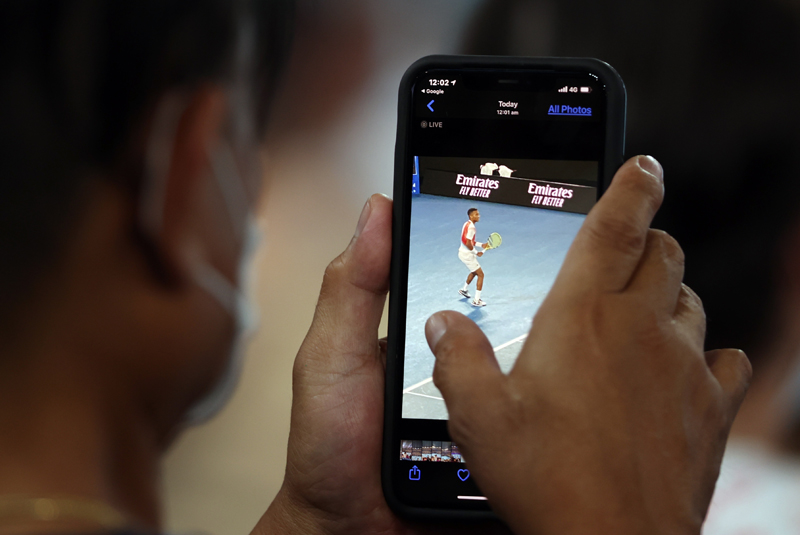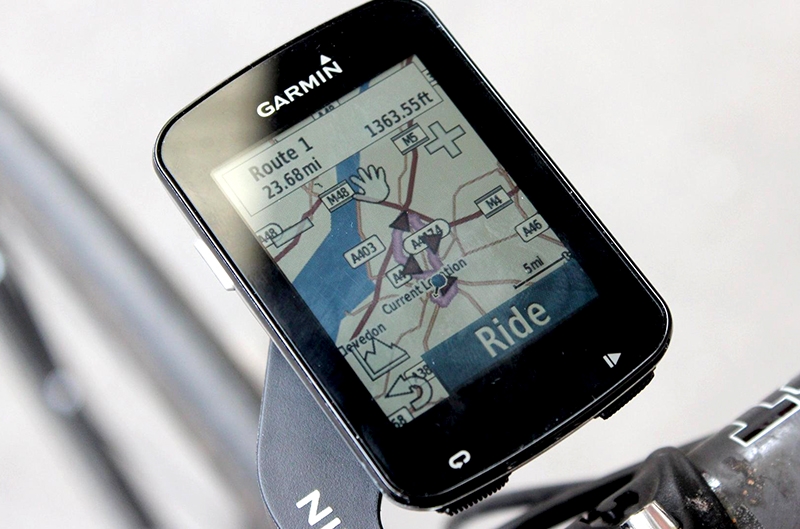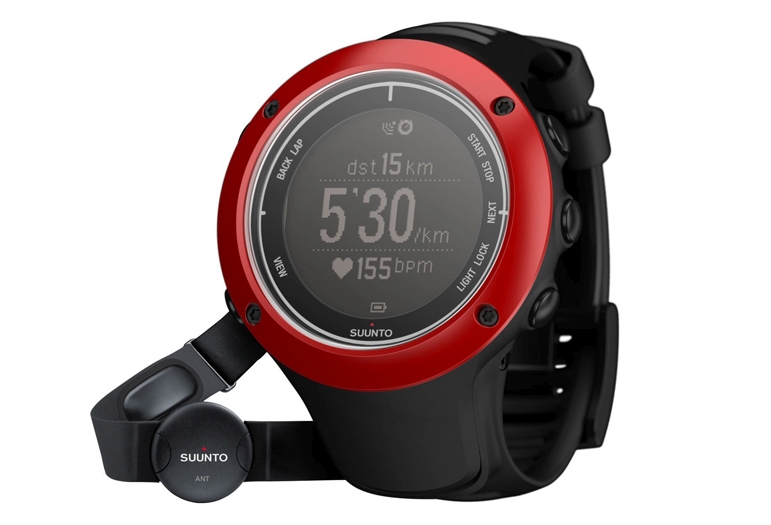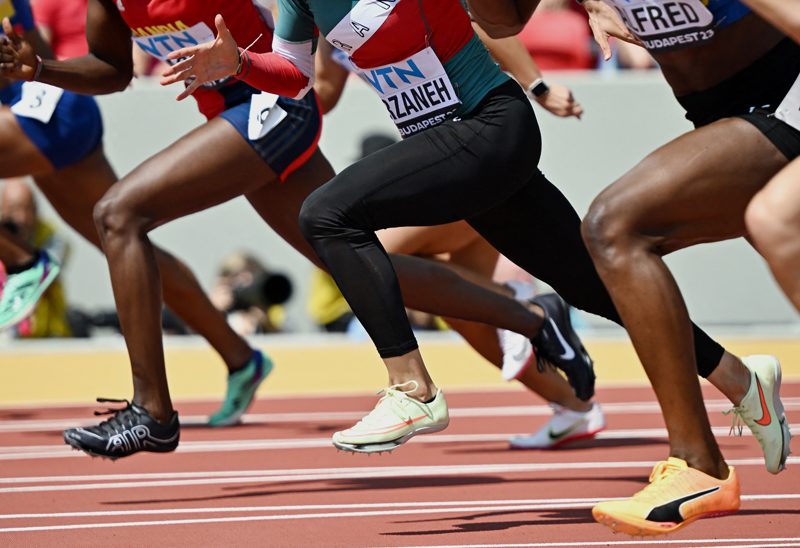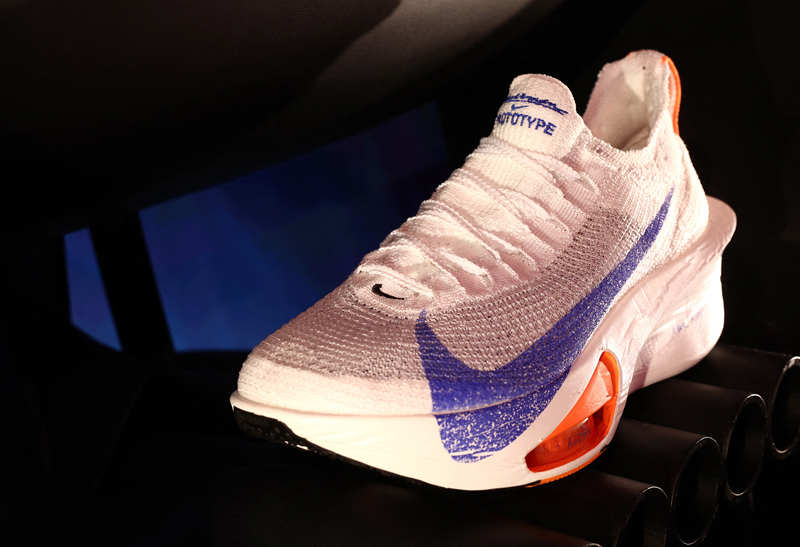You are viewing 1 of your 1 free articles. For unlimited access take a risk-free trial
Liberate yourself: don't be a data slave!
Andrew Hamilton explains why athletes shouldn’t feel the need to be data slaves
Andrew Hamilton explains why some data-free training sessions are perfectly acceptable for athletes seeking maximum performance
The relentless march of digital technology is inevitable and no aspect of our daily life seems to be without it. Nowhere is this truer than in training, where athletes now have access to a plethora of accurate and affordable electronic monitoring and feedback devices. From simple bike computers to GPS devices and power metering systems, it’s never been easier to monitor your performance and collect data to help you plan your future training sessions. With so much information so easily available, it’s natural to assume that something like pacing a time trial without the use of such information would put you at a distinct disadvantage. But a newly published study on cyclists suggests that this isn’t necessarily the case.
The research
In the study, researchers decided to investigate how experienced cyclists performed a time trial with and without the aid of commonly used feedback from electronic devices – eg speed, heart rate, power output, cadence, elapsed time, and elapsed distance. The researchers speculated that without this feedback, the cyclists would find it more difficult to regulate, distribute, and manage their effort, resulting in poorer performances. To put this to the test, 20 performance-matched cyclists were randomly divided into one of two groups and asked to perform a 20km time trial as fast as they could:
- Group A, who didn’t receive any feedback during the time trial
- Group B who were able to continuously consult various feedback information, which consisted of speed, heart rate, power output, cadence, elapsed time, and elapsed distance during their time trial
After the time trial, the researchers analysed the results to see what significant differences there were in terms of performance and other parameters.
The findings
When the data was analysed, the scientists were surprised to discover that the overall 20km-times of the cyclists using feedback were not significantly better than from the no-feedback group, nor was there any real difference between the average power outputs per kilo of body mass of the two groups. It was true that the cyclists with access to feedback did put a spurt in at the end of the time trial (presumably because they knew exactly how much distance remained and were able to time this spurt appropriately), but this didn’t enhance overall performance. Moreover, the perceived ratings of exertion for the time trial were the same regardless of whether the cyclists had feedback or not. Front Physiol. 2016 Aug 10;7:348. doi: 10.3389/fphys.2016.00348. eCollection 2016
PP VERDICT
What’s interesting about this piece of research is that it suggests experienced cyclists can use simple bodily and environmental information -eg “How am I feeling and how hard am I breathing?” - to control and adjust their effort level and achieve comparable time trial performances to when feedback is used. Indeed, the researchers concluded by questioning the ‘necessity of the presence of in-race instantaneous task-related feedback via electronic devices for maximising performance’.
Does this mean cyclists should bin their bike computer/GPS/power meters? Of course not! There’s no denying that they can play an important role in ensuring the correct training intensity, and providing valuable information about whether the training performed is producing the required fitness gains. What this research does suggest however is that if you’re an experienced cyclist, you needn’t feel wedded to these devices and be a slave to data. So long as you listen to your body, doing some rides without any data feedback is unlikely to harm your performance and could actually be a rather liberating experience!
PRACTICAL SUGGESTIONS
- Make use of electronic feedback devices but don’t use them as a substitute for monitoring how you feel (perception of effort, breathing rate, sensations of discomfort etc).
- Remember that there are always natural short-term variations in performance due to factors like sleep, stress, and (for women) time of the month; when analysing data from devices, try therefore to look at your longer-term performance trends (eg now compared to 3 months ago) rather than week to week or day to day.
- Try a few ‘data-free’ rides, which can be very mentally refreshing!
Newsletter Sign Up
Testimonials
Dr. Alexandra Fandetti-Robin, Back & Body Chiropractic
Elspeth Cowell MSCh DpodM SRCh HCPC reg
William Hunter, Nuffield Health
Newsletter Sign Up
Coaches Testimonials
Dr. Alexandra Fandetti-Robin, Back & Body Chiropractic
Elspeth Cowell MSCh DpodM SRCh HCPC reg
William Hunter, Nuffield Health
Keep up with latest sports science research and apply it to maximize performance
Today you have the chance to join a group of athletes, and sports coaches/trainers who all have something special in common...
They use the latest research to improve performance for themselves and their clients - both athletes and sports teams - with help from global specialists in the fields of sports science, sports medicine and sports psychology.
They do this by reading Sports Performance Bulletin, an easy-to-digest but serious-minded journal dedicated to high performance sports. SPB offers a wealth of information and insight into the latest research, in an easily-accessible and understood format, along with a wealth of practical recommendations.
*includes 3 coaching manuals
Get Inspired
All the latest techniques and approaches
Sports Performance Bulletin helps dedicated endurance athletes improve their performance. Sense-checking the latest sports science research, and sourcing evidence and case studies to support findings, Sports Performance Bulletin turns proven insights into easily digestible practical advice. Supporting athletes, coaches and professionals who wish to ensure their guidance and programmes are kept right up to date and based on credible science.
